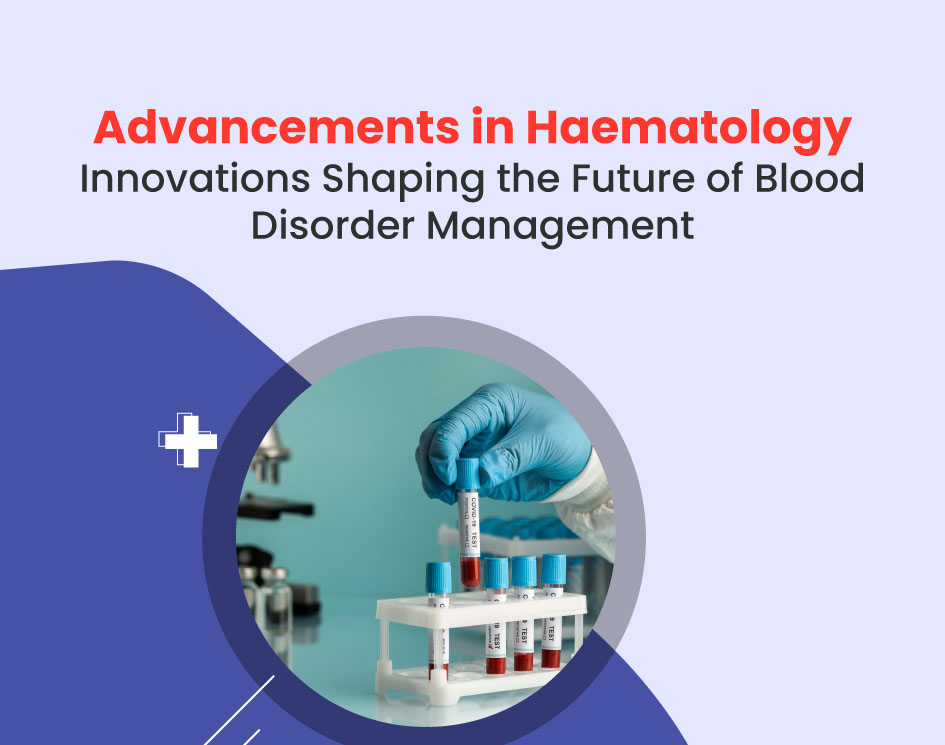
Advancements in Haematology: Future of Blood Disorder Management
Haematology, the branch of medicine that deals with the study, diagnosis, and treatment of blood disorders, has witnessed significant advancements in recent years.
Thanks to breakthroughs in technology, research, and understanding of the complexities of blood disorders, innovative solutions are shaping the future of haematology and transforming the management of various conditions. From improved diagnostics to targeted therapies, these advancements hold tremendous promise for patients worldwide.
One of the most significant innovations in haematology is the advent of next-generation sequencing (NGS) technologies. NGS allows for rapid and accurate analysis of multiple genes simultaneously, enabling a comprehensive assessment of genetic mutations associated with various blood disorders.
This technology has revolutionized the diagnosis of haematological malignancies, such as leukemia and lymphoma, by providing a detailed genetic profile of the tumor cells.
Physicians can now use this information to tailor treatment strategies based on the specific mutations present, leading to more precise and personalized therapies.
In the realm of blood transfusion, advancements have also been made to improve patient outcomes and address challenges associated with compatibility and availability.
One notable development is the emergence of artificial blood substitutes. These synthetic products, designed to mimic the oxygen-carrying capacity of red blood cells, have the potential to overcome the limitations of traditional blood transfusions.
Artificial blood substitutes are not only compatible with all blood types but also free from infectious agents, reducing the risk of transfusion-related complications. Although still in the experimental stages, ongoing research holds promise for their application in emergency situations and remote settings where the immediate availability of blood is limited.
Another breakthrough in haematology is the development of gene therapies for inherited blood disorders. Conditions like sickle cell disease and thalassemia, which require lifelong management, can be debilitating for patients. Gene therapy offers a potential cure by correcting the underlying genetic mutations responsible for these disorders.
Recent clinical trials have demonstrated remarkable success in this field, with patients experiencing significant improvements in their symptoms and reduced reliance on regular transfusions.
While further research is needed to establish long-term safety and efficacy, gene therapies hold immense potential for transforming the lives of individuals living with inherited blood disorders.
Advancements in haematology have also led to the development of novel targeted therapies that specifically address the mechanisms driving certain blood cancers.
Precision medicine, an approach that tailors treatment based on an individual’s unique molecular profile, has gained significant traction in haematological malignancies.
One example is the use of tyrosine kinase inhibitors (TKIs) in the treatment of chronic myeloid leukemia (CML). TKIs specifically target the abnormal protein responsible for driving the growth of CML cells, leading to remarkable responses and long-term remission in many patients.
Similarly, monoclonal antibodies and immune checkpoint inhibitors have shown great promise in the management of lymphomas and multiple myeloma, improving outcomes and reducing the side effects associated with traditional chemotherapy.
Advancements in haematology extend beyond treatment modalities. Innovations in supportive care have also played a crucial role in improving patient well-being and quality of life.
For instance, the development of erythropoiesis-stimulating agents (ESAs) has revolutionized the management of anemia in patients undergoing chemotherapy or suffering from chronic kidney disease.
ESAs stimulate the production of red blood cells, reducing the need for blood transfusions and alleviating symptoms such as fatigue and shortness of breath. Similarly, improved understanding of the molecular mechanisms underlying blood clotting disorders has led to the development of targeted anticoagulants with enhanced efficacy and safety profiles, minimizing the risk of complications.
In conclusion, haematology is witnessing remarkable advancements that are reshaping the future of blood disorder management. From next-generation sequencing and artificial blood substitutes to gene therapies.






